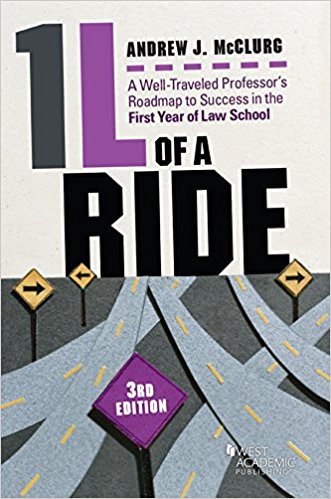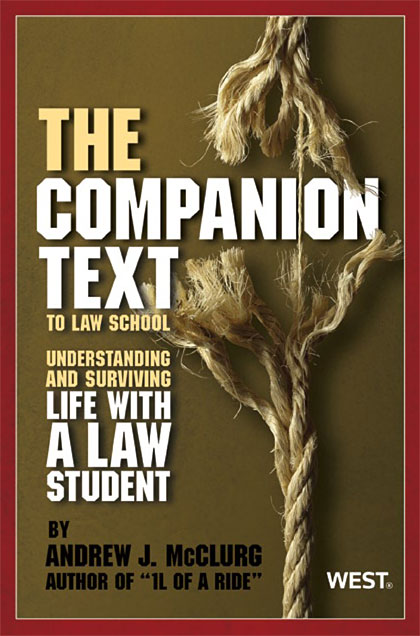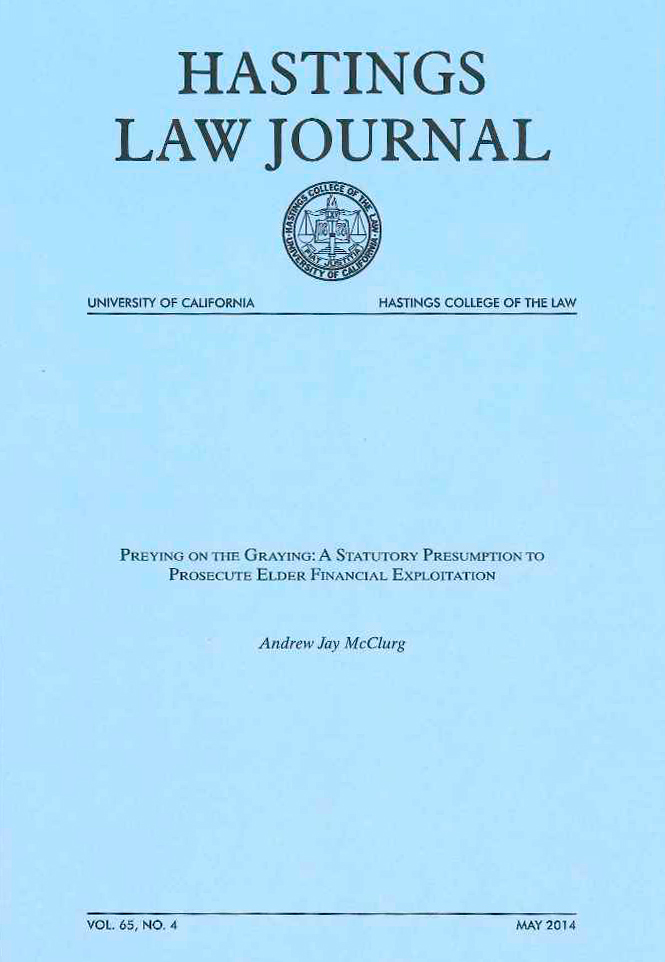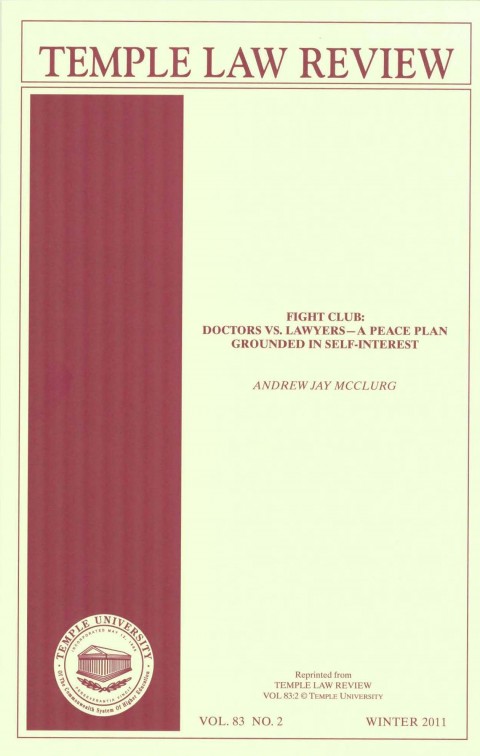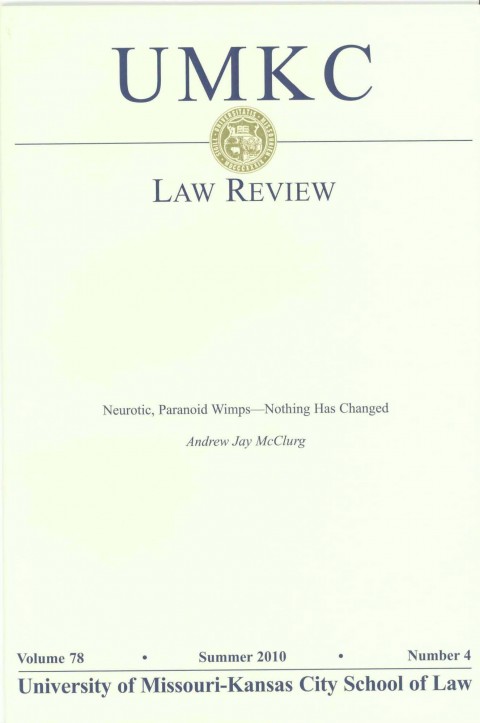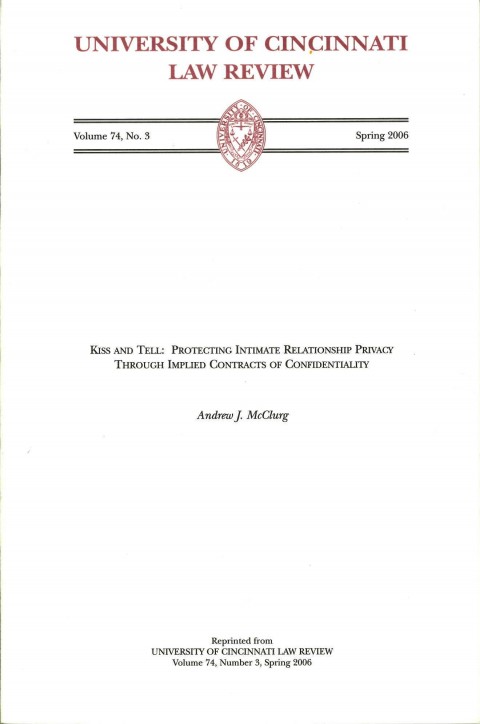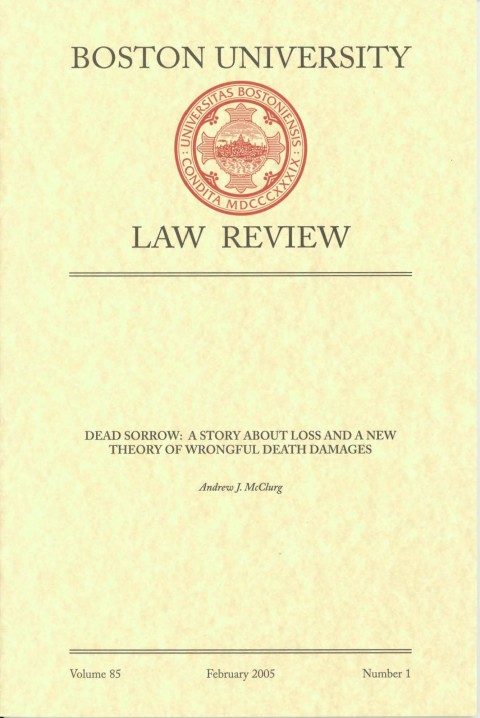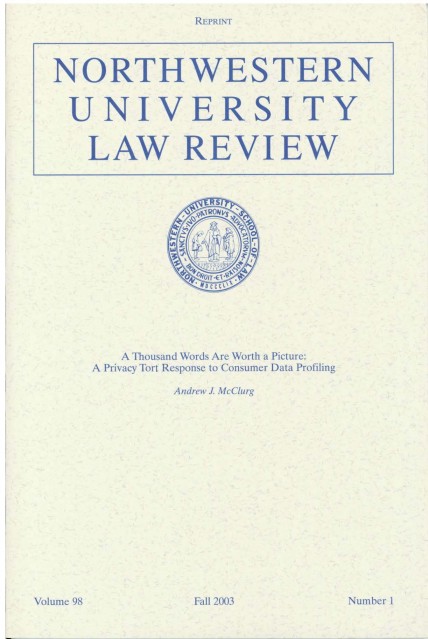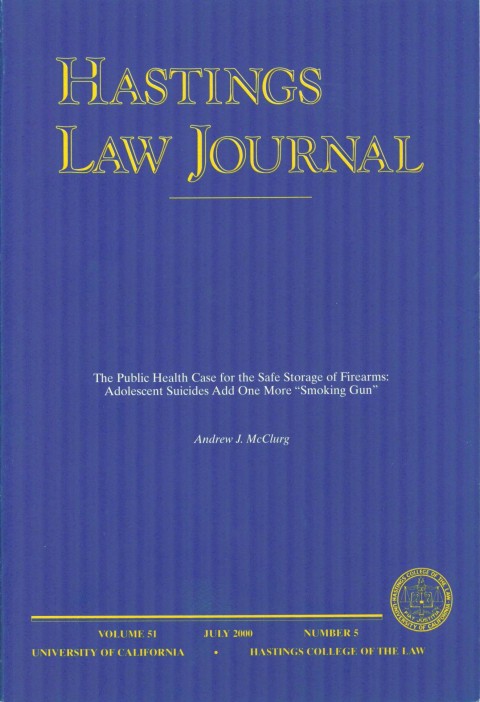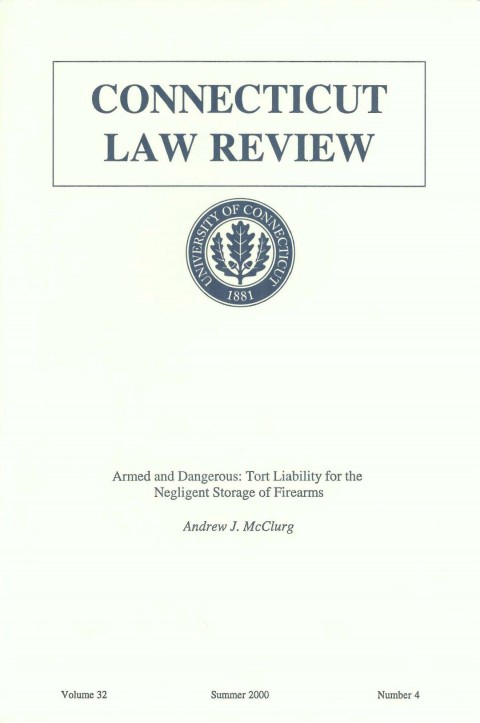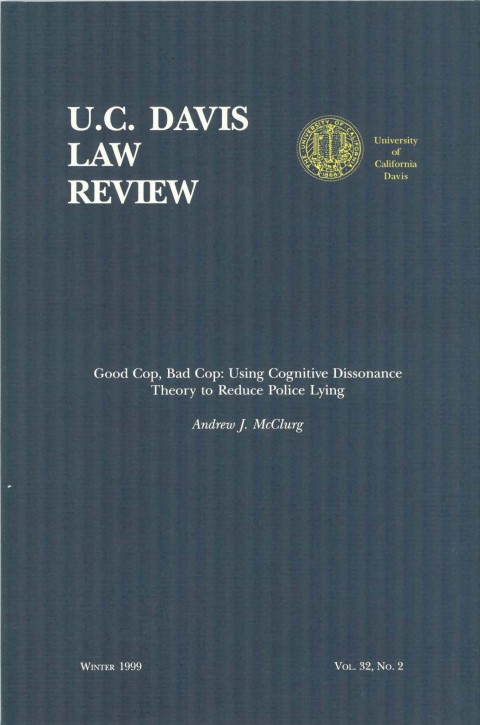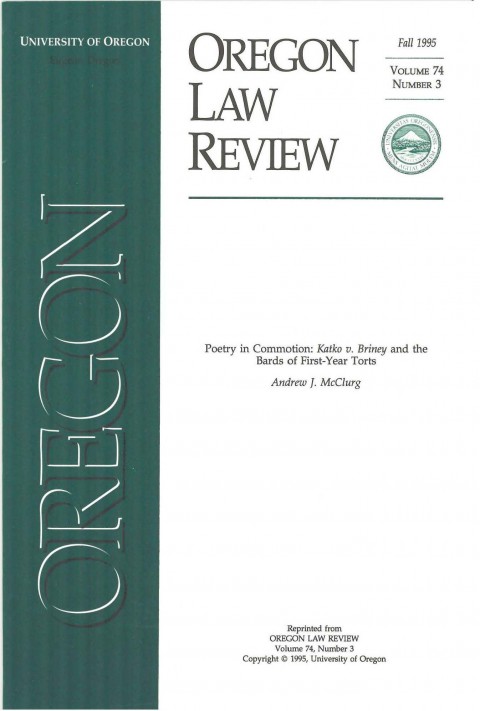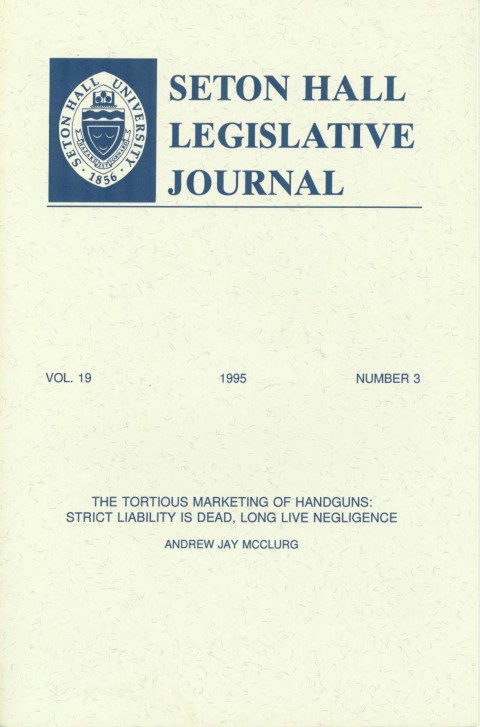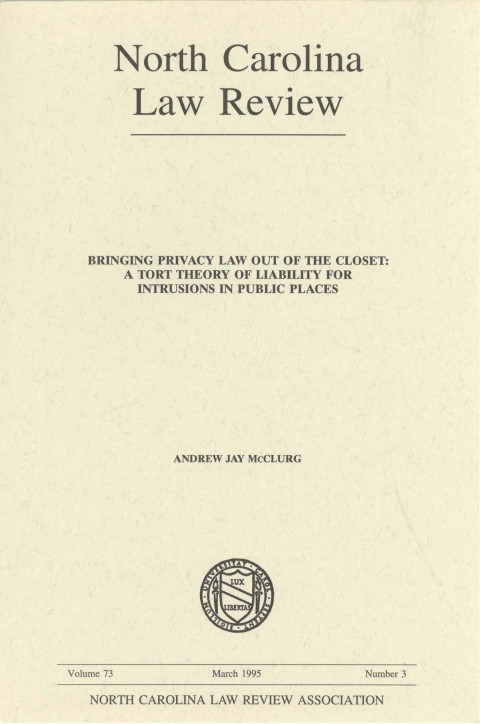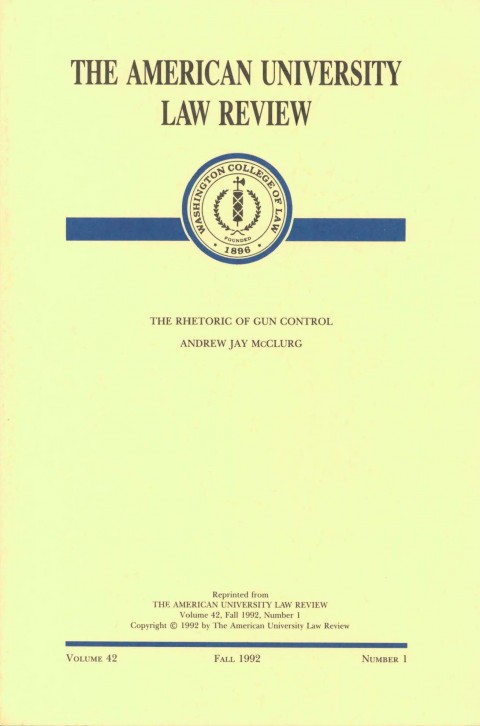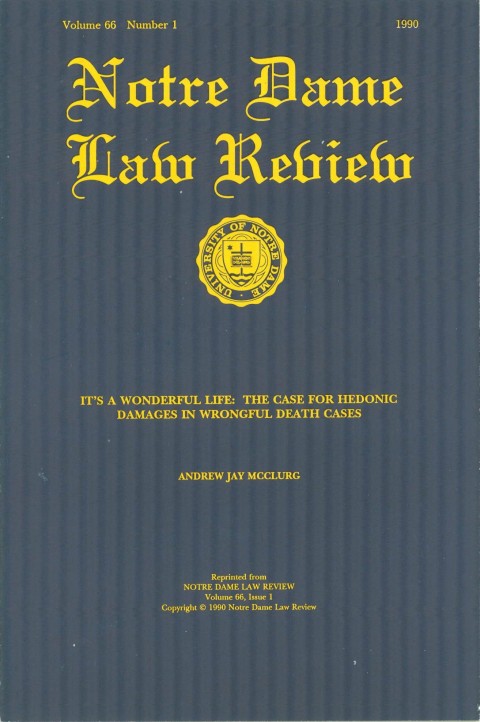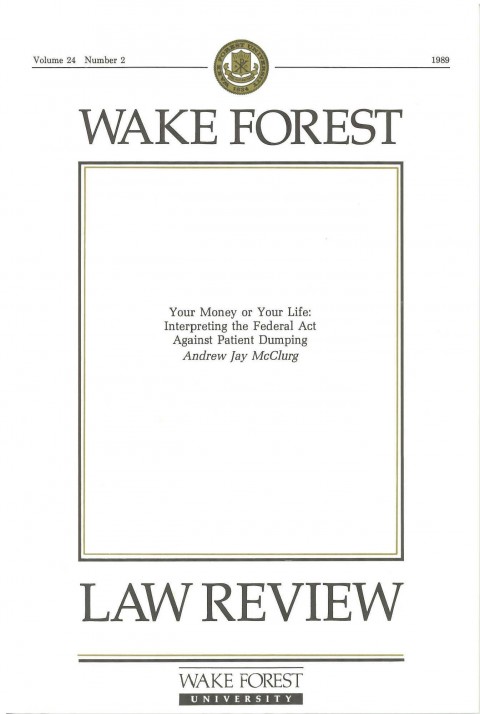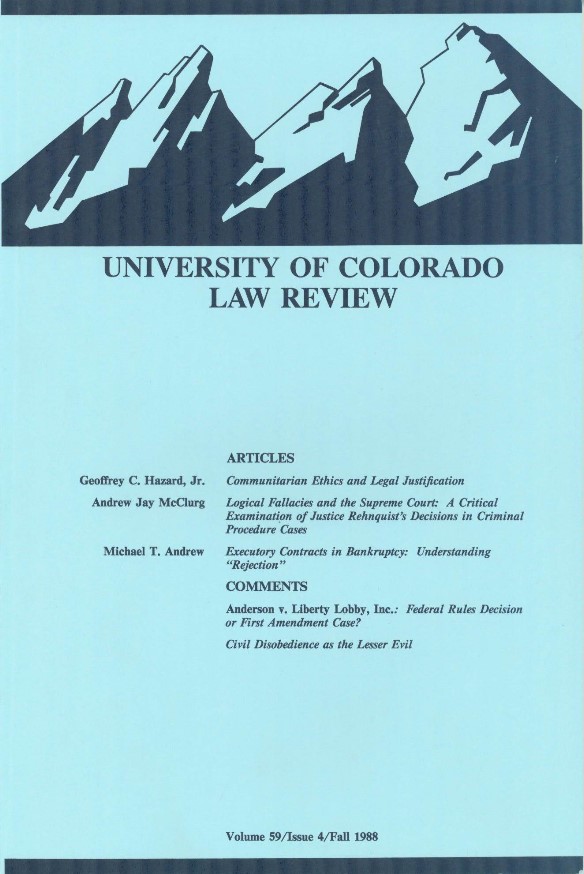Some people blamed Yoko Ono for the Beatles’ breakup, but now comes the discovery that the demise of the Fab Four was rooted in a bizarre artistic dispute over the recording of Sgt. Pepper’s Lonely Hearts Club Band.
|
As sports fans look forward to another season of exciting NFL football, the slow process of coming to contract terms with this year’s draft picks continues. Why does it take so long to sign players to contract? These sports law insights help explain it: According to Kimm Walton’s popular book, Guerrilla Tactics For Getting the Legal Job of Your Dreams, when legal interviewers ask tough questions like “What’s your greatest weakness?” it’s not so much because they want to know the answer as to test your ability to handle pressure. Legal disputes arising from the denial of medical coverage by managed health care organizations are on the rise. HMOs face a difficult challenge in making coverage decisions because they must delicately balance two conflicting interests: providing quality health care for their patients at a reasonable cost and hoarding as much money as possible. My daughter’s litigiously delinquent pal, Suzy Spikes, just turned 13, causing concern in the neighborhood over the effect of adolescence on Suzy’s already temperamental nature. The hearsay rule and its many exceptions are a marvel of complexity. The confusion starts with the basic definition of hearsay as any statement made out of court “offered to prove the truth of the matter asserted.” If an out-of-court statement is offered for a purpose other than proving truth, it’s admissible. Some lawyers believe all statements are offered to prove their truth and that opponents sometimes subvert the rule by misrepresenting the real purpose for which evidence is offered. In our high-tech information society, product manufacturers are well aware of the importance of product release announcements for generating buzz in the marketplace. Lawyers often play a crucial role in compiling and reviewing new product documentation prior to its release. Sometimes it goes to their heads, as two Silicon Valley lawyers recently demonstrated: With Valentine’s Day looming, it’s a good time to get some legal perspective on the whole relationship thing, especially the breaking up part. We need to face the fact that despite our hopelessly unrealistic expectations, most relationships don’t last. Breaking up has serious consequences for both parties which need to be considered in advance, while equal bargaining power still exists. Never enter into a relationship unless BOTH parties have executed the… With cities threatening lawsuits and stiff fines for lousy service and millions of viewers flocking to satellite dishes, cable television companies have realized they need to upgrade their image. The giant, caring brain inside the cable industry’s public relations center has responded with this insert for next month’s bill: The right to keep and bear a cell phone is one our nation’s most cherished liberties, yet a movement is afoot to restrict this freedom. Bills have been introduced in 25 states to prohibit driving and talking. Beware. Freedom of digitized speech is in danger. In San Francisco, they hold Dog Court. This is where troubled dogs end up when they choose the wrong path in life, such as the one directly behind a fleeing postal worker. Both sides show up and present their stories. Sometimes they bring witnesses and even lawyers. In half the cases, the dogs are ordered leashed or muzzled. Difficult cases are referred to pet shrinks. One dog was put on Prozac because, in the judge’s words, “he was so high-strung.” E-commerce has exploded. You can buy just about anything online these days. eBay Inc. alone offers four million auctions a day, in 4,320 categories. It was only a matter of time before e-lawyering came of age. The last time we checked in on Suzy Spikes, my daughter’s litigiously delinquent pal, she was defending herself in a school dress code proceeding. Fortunately, the matter settled. Suzy agreed not to throw up on school officials during future closing arguments. In return, the dress code was amended to recognize a fundamental right to wear fake tattoos, Mocha Latte nail polish and any outfit evoking the parental response, “Over my dead body.” [Spurred by the Enron debacle, Congress recently passed campaign finance reform legislation. Why did it take so long? Check out this column from Sept. 2000 for answers.] Campaign finance reform has played a contentious role in this year’s electioneering, yet many people still are confused by the intricacies of this important issue. The National Missile Defense (NMD) is the successor to President Reagan’s Star Wars initiative. The system is designed to protect us from unfriendly “rogue states” by blasting their missiles out of the sky with our missiles. The NMD should be of great interest to lawyers because if it doesn’t work, probate business may be picking up considerably in the future. Like many adults who were less than pleased to receive the news that they were expected to actually grow up one day, I love Harry Potter. For readers who have been heavily sedated or in trial for the past several years, Harry is the protagonist in J.K. Rowling’s brilliant, best-selling books about a remarkable young wizard somewhere in England. Why is Harry so remarkable? Two reasons. First, he saved the entire wizarding world while only a tot. Second, never in the history of education has a student been subject to as much tortious conduct as Harry Potter has at the Hogwarts School of Witchcraft and Wizardry. Every lawyer remembers the LSAT®. But how many people remember how incredibly hard it was, especially the analytical reasoning section? In writing an instructional guide to law school, I had occasion to revisit the LSAT®, and came away believing it’s a miracle I ever got a single question right. Check out these sample questions: Palsgraf v. Long Island Railroad. The mere mention of it evokes memories of that fateful day at the Long Island train station when two railroad workers trying to help a man board a moving train accidentally dislodged a box he was carrying. The box turned out to contain fireworks that exploded and knocked a scale over onto Mrs. Palsgraf. If the rules of romance were taken as seriously as rules of law, 99 percent of new lovers would be pursuing fraud claims against their partners. Why? Because with everyone on their best behavior in the early stages of a relationship, what we see is seldom what we get. Insurance companies enjoy a unique privilege among businesses—the ability to unilaterally alter contract terms in their favor simply by sending out an “Important Notice” notifying policyholders of the changes. Good news and bad news for supporters of Suzy Spikes, my daughter’s litigious, delinquent pal. The good news is that 13-year-old Suzy found romance. The bad news is that, like most events in Suzy’s life, it threatens to become another landmark case. What’s so funny about a hairy hand? That’s what I set out to investigate after several requests for a column about Hawkins v. McGee, 146 A. 641 (N.H. 1929), better known as “the hairy hand case.” Law schools require applicants to submit multiple letters of reference in support of their applications. While this would seem to be an excellent method for screening candidates, a problem arises from the fact that many letters of recommendation come across as completely bogus. Researchers have announced alarming findings from a study of science textbooks used by middle school students: they’re riddled with inaccuracies. Led by John L. Hubisz of North Carolina State University in Raleigh, investigators poured over the dozen most popular science texts and compiled a list of errors 500 pages long. The music industry has won its lawsuit against Napster to prevent song swapping on the Net. Pfizer, maker of Viagra, is suing a Little Rock woman for selling bottles of “Niagara,” claimed to be an aphrodisiac for women. Margaret Mitchell’s heirs sued to block publication of Alice Randall’s controversial takeoff of “Gone With the Wind.” With the explosion in intellectual property rights, I knew it was only a matter of time before trouble arrived, which it did last week in the form of an alarming cease and desist letter from an IP firm claiming to represent the heirs of one Mr. Ug. Following a summer of high gas prices, blackouts in California, and record oil company profits, some worriers think we might need to tweak our nation’s energy policy. Since many of the proposed solutions will entail considerable legal wrangling, lawyers need to be well-informed about this vital issue. Here are some of the most commonly-asked questions: Protect the environment. Reform welfare. Lower taxes. Regulate the Internet. Control guns. And do it all for the sake of children! Politicians are coming to believe that any issue can be sold to the American people so long as it is dressed up in the language of protecting children, as demonstrated by this recent argument on the House floor in favor of increased subsidies for tobacco: Judging by the passion and vituperation the topic evokes on Internet consumer complaint sites, video rental late fees may be the number one legal issue facing average Americans. The complaints are eerily similar: 
Get busy inventors. "M" is already taken. U.S. Patent 6,834,453 is for a piece of foam in the shape of an “M” worn on the head. The invention, cleverly and appropriately named the “Head Mounted Letter ‘M’ Display,” is designed for sports fans who want to support their teams that begin with the letter “M.” The funniest aspect of this patent (other than that one can get a patent for a head-mounted letter of the alphabet) is all the complex diagrams of a guy wearing an “M” on his head. — U.S. Patent 6,834,453 , Dec. 28, 2004. 
You’ll be tempted to look this one up to be convinced it’s not made up. The U.S. Patent and Trademark Office issued a patent for a toy rocket powered by flatulence. That’s right. U.S. Patent No. 6,055,910 is for a “toy gas-fired missile” that is prepared for takeoff by the operator placing “the inlet tube with its valve open adjacent to his anal region from which a colonic gas is discharged.” After being loaded, “[t]he ignitor is then activated to explode the mixture in the chamber and fire the missile into space.” The “Status of the Prior Art” section of the patent offers a dissertation on flatulence, including way Law professors teach students that the law is full of gray with very few black or white answers. The most accurate answer to most legal questions is “It depends.” But that’s not always the case. Senior Judge James Barlow, San Antonio, TX, sent the below land title opinion, reportedly written in 1928 by a title examiner in Prewitt, Texas named Kress Campel for a client named Alex Deanton. (Unfortunately, we have not been able to authenticate this entry. If you have any info on that point one way or another, please send it along). The examiner’s opinion was sought concerning a title abstract covering “the South 238 plus It’s publish or perish in the law professor business, and most of that publishing occurs in law review articles. Law professors strive mightily to make their law review articles stand out by coming up with clever titles for them. The trick is coming up with a title that is attention-getting, but also descriptive. This, of course, requires use of the ubiquitous colon, which appears in the vast majority of law review titles. Some law professors look down on colons in law review titles (yes, this is part of the important stuff we actually spend time thinking and talking about) and eschew them, but the result is often a title 
Don't tie a giraffe – or any other animal – to a lamp post in Vermont. Have you ever read about that “bizarre” Vermont statute that prohibits tying giraffes to lamp posts? I’ve seen references to it in books and in far too many forwarded emails. When David Tartter came across it, he had a novel idea: he actually looked it up. Guess what he found? The statute prohibits tying any animal to a lamp post. While giraffes technically are included, it’s doubtful the law would have assumed its legendary “wacky” status if it were reported as a statute that prohibited tying, say, dogs to lamp 
A $600,000 jury verdict for losing psychic powers sounds ridiculous, and likely the grossly misunderstood McDonald’s coffee spill case, Haimes v. Temple University has been abused as a tool to whip up on trial lawyers and the tort system. But as with the McDonald’s case, Haimes got twisted in the telling. Plaintiff Judith Richardson Haimes brought a medical malpractice action against defendant after a CT scan allegedly caused her chronic and disabling headaches and prevented her from practicing her occupation as a psychic. A jury awarded her $600,000 after a four-day trial. Wow! But pro-tort reform accounts of the case omit two critical facts. First, that the trial judge This from a judicial friend who prefers anonymity: a disciplinary action against a judge who likes to hand out acorns. Sound odd? It gets odder. The acorns contained condoms and he handed them out to women he didn’t know. Here’s the story: A Pennsylvania magistrate judge from Intercourse, Pennsylvania (that’s right, Intercourse) attended a continuing education course in nearby Harrisburg. While there, the judge approached two women, neither of them known to him, and presented them with some acorns. He encouraged them to try them and to return the following day to let him know how they liked them. The women subsequently cracked open the nuts and discovered that the According to North Carolina Judge David K. Fox, General Court of Justice, Transylvania County, “Teenaged boys were created to mumble darkly whilst doing yard work to justify their existence on earth and their room and board.” That’s just one of many pearls offered by Judge Fox in a temporary support order in a divorce case, an order as hilarious as it is skillfully articulated. The facts are extensive, but basically, the husband, a doctor, was seeking relief from support payments to his ex-wife, who, along with her kids, was living quite well on the ex-hubby’s income while declining to seek substantial work of her own. The wife had been a Judge Mark Painter, Ohio First District Court of Appeals, took some lawyers to task for moving to strike their opponent’s appellate brief for exceeding the page limitations set by rule, apparently even redrafting portions of the brief in the process: Not wishing to let stand a brief they consider too long, counsel for appellant … have moved this court to strike [appellees’ brief] … contending the brief (1) put the citations in footnotes (where they belong!); and (2) uses footnotes to “get around” the page limit. And counsel even goes so far as to redraft their opponent’s brief, inserting the jumble of letters and numbers into the paragraphs—even Sometimes you just need to know when to fold ‘em. In a 1963 divorce case, the wife accused the husband–a dentist–of adultery with several of his patients. The husband vigorously contested the allegations. Fifteen hundred pages of testimony later, the case made it to the New Jersey Superior Court, which had to decide whether the evidence proved adultery. The husband had creative explanations for every bit of damning evidence. For example, when the wife produced a film she found of the husband inserting a speculum into a nude patient in his office, he said he was conducting medical research. Remember, he’s a dentist. On another charge, the wife claimed she 
George W. Bush — Sued by whales. Lawhaha.com obviously has great fondness for judges who liven up their opinions with humor and other writing spice, but a case from the U.S. Court of Appeals for the Ninth Circuit shows why judges need to exercise care in stirring in these ingredients. In a suit brought against George W. Bush and Donald Rumsfeld on behalf of all whales, dolphins, and porpoises, the Ninth Circuit had to decide whether animals have standing to sue on their own behalf under the Endangered Species Act and other federal statutes. The plaintiff was “the Cetacean Community,” a name chosen by the Cetaceans’ self-appointed A defendant, probably in a divorce case, lost it when asked to state his name for the record in answer to the first question of a deposition. The deposition started out like this: BY MS. WATSON Q. State your name. A. You know it. MR. DORSEY: Answer the question. THE WITNESS: Five f****** years and that’s the first thing– Things went downhill swifly after that. Above the Law has the full story and complete two-page deposition. 
Prosecutor used Celine Dion's and Enya's music to soften up jury. Salazar v. Texas was a grisly murder case involving a victim and alleged dope dealer named Jonathon. Jonathon’s cohorts turned on him and killed him by beating him with baseball bats and strangling him with wire. At the punishment phase of the trial, over the objection of defense counsel, the state played a professionally edited video montage of Jonathon’s life, complete with music by Enya and Celine Dion! The defendant appealed on the ground that the videotape was prejudicial. Here’s how the appellate court described the videotape (paragraph breaks inserted): This video is Goshgarian v. George involved warring neighbors, one of whom continually dumped dirty water from his swimming pool onto the other’s property. The water-dumping defendant came up with the imaginative, if not quite legally sound, argument that, since the County of Fresno had an easement on the property for the drainage and disposal of water, the individual defendant should have the same right. The court was downright astonished by the creativity of the argument (paragraph breaks inserted): Only a mind unburdened by the ephemeral shackles of legal training and gloriously free of the stultifying pomposities of precedent and stare decisis could have formulated the epiphanous principle that what the Judge Mark Painter, a judge on the Ohio Court of Appeals, sent in a couple of his own funny opinions. The first one he wrote back when he was a municipal court judge. Lawhaha.com clings steadfastly to being a family friend site, but it’s not easy when a primary source of Strange Judicial Opinions is that haven for adult-oriented material known as the National Reporter System. In State v. Parenteau, the defendant was charged with public indecency. We’ll let Judge Painter explain what happened: Defendant was part of a “lingerie fashion show” at a nightclub named “Scandals” in western Hamilton County. The charge arose from the modeling by 
Chick Iverson left his mark in more ways than one. California lawyer Frank Zotter sent in Iverson v. Iverson, a California divorce case in which the trial judge, in Frank’s words, “demonstrates once again the wisdom of the old saying, ‘it’s best to keep your mouth shut and have everyone think you a fool than to open it and leave no doubt.’” The case involved the validity of a prenuptial agreement and the question of which of the parties had initiated the idea of marriage. The trial judge concluded that surely the wife had pursued the marriage. After all, the judge said, she was “lovely,” but “[h]ad 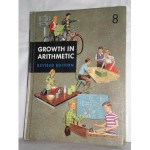
Eighth-grade math book held to be controlling authority by a federal appellate court. You gotta love an opinion that begins: In this appeal we are asked to determine whether “.82″ is the equivalent of “82%.” Having successfully completed grammar school, we are able to answer the question in the affirmative. An unsuccessful bidder for an offshore oil and gas lease brought suit against the Secretary of the Interior for awarding the contract to a competitor. The plaintiff offered a royalty of “73.45689%” in its bid. A competitor offered a royalty bid of “.82165.” The Secretary construed the competitor’s bid as one for 82.165 percent, and Why waste words? Wouldn’t it be nice if more judges could cut to the chase like Judge J.H. Gillis of the Michigan Court of Appeals? Here’s his entire opinion in Denny v. Radar Indus., Inc.: J.H. Gillis, Judge. The appellant has attempted to distinguish the factual situation in this case from that in Renfroe v. Higgins Rack Coating and Manufacturing Co., Inc. (1969), 17 Mich. App. 259, 169 N.W.2d 326. He didn’t. We couldn’t. Affirmed. Costs to appellee. As the most succinct judicial opinion known to Lawhaha.com, Judge Gillis’ effort enters the Strange Judicial Opinions Hall of Fame. — Denny v. Radar Indus., Inc., 
Judge used Leann Rimes tunes to solve her contract dispute. In Rimes v. Curb Records, Inc., country music sensation LeAnn Rimes sought to void a recording contract on the basis that she was a minor when she signed it. Judge Jerry Buchmeyer, one of the original legal humorists, upheld a forum selection clause in the contract and granted the defendant’s motion to transfer the case to Tennessee—and he did it all to the tune of LeAnn’s hit songs. Here’s a sample (footnotes omitted): STATEMENT OF FACTS (To be sung to the tune of LeAnn Rimes, “How Do I Live.” Copr. & (R) 1997 Ohio Court of Appeals Judge Mark Painter combined humor and common sense in Gibson v. Donahue, where the plaintiff was injured being thrown from her horse, which was spooked by two Irish Setters that the defendant allowed to run free in an area restricted to equestrian use. Talk about creative lawyering. The defendant tried to escape liability by relying on an Ohio statute intended to provide tort immunity for riding stable owners and horse show operators for injuries resulting from the inherent risks of equine activity (a statute Painter said “is noteworthy mainly for using the word ‘farrier’ ten times”). Judge Painter observed that the case was one of first 
Ohio Court of Appeals Judge Mark Painter writes some amusing opinions. He had a bit more leeway to let loose back when he was a municipal judge presented with some highly unusual fact patterns. In State v. Kirchner, the defendant was charged with aggravated menacing and resisting arrest. It all started just because he wanted to hang out one night at home with some friends–with a five-foot dead snake nailed to his door. Read on and enjoy: The evidence adduced presented, at the very least, a bizarre situation. Cincinnati Police Officers Randy Froehlich and Steve Means received a radio dispatch to an address … in the “Over-the-Rhine” Baseball fans may enjoy this opinion from Ohio Court of Appeal Judge Mark Painter. In a taxpayer suit against the Cincinnati Reds and the City of Cincinnati alleging failure of the city to collect stadium rent from the Reds, Judge Painter managed to lighten up the complex legal analysis by sprinkling baseball phrases throughout the 20-page opinion. Judge Painter offers this succinct play-by-play in the opening paragraph: In keeping with the less than stellar history of stadium construction in Cincinnati is this lawsuit involving the Cincinnati Reds, Cincinnati, and Hamilton County. It has twisted and turned, parties have been thrown out and substituted, and none of the parties 
Imagine you and me. How can you not love U.S. District Judge William G. Young, chief judge for the District of Massachusetts, for his candor and willingness to come clean on an error he made in a case? Confronted with a motion for new trial based in part on his allegedly erroneous jury instructions, he stated candidly: “[D]espite case-specific guidance from the court of appeals, I botched the instructions to the jury.” Even better, Judge Young began his opinion in Suboh v. Borgioli by setting forth the lyrics to “a derisive ditty going around the courthouse” set to the music of “Happy Together” by the Turtles. The 
A Texas lawyer is a big fan of the Texas Rangers baseball team. Make that a HUGE fan. So huge that he filed an “emergency motion for continuance” of a pretrial conference in a case that conflicted with Game 1 of the 2010 World Series between the Rangers and the San Francisco Giants. Here’s some of what he said: 1. The lawyer in charge of this matter for the defendant is Darrell W. Cook (hereinafter referred to as Darrell). 2. Since 1972, when Darrell was but a lad of thirteen, he has been a fan of the Texas Rangers Baseball Club (hereinafter referred to as Undocumented reports of weird laws, funny “real life” litigation transcripts, and outrageous lawsuits have been circulating for decades. Some of them are the same stories I read back as a practicing lawyer 30 years ago. People send them to Lawhaha.com all the time, but we never post them because they lack documentation. Scott Martin’s email below prompted us to think more about the issue and to start a category for Legal Mythbusters. Lawhaha.com would love be the Annenberg Fact-Check center for legal humor, but we don’t have the resources. Actually, we won’t have any resouces. So we’re depending, as always, on you, the loyal Lawhaha.com reader. If you have any 
Why wait until after? So you’re reading through the patent entries on the U.S. Patent & Trademark Office website, you know, just for fun, and come across a patent for an invention titled “Method of using a water pipe”: Bor-ring. But wait. Not so fast. Turns out this inauspiciously titled invention is actually quite interesting: A water pipe providing sexual stimulation includes a tube with an exit port at its upper end, an reservoir port at its lower end, and an inlet port. The inlet port is spaced from the lower end whereby the inlet port remains exposed when the lower end is inserted into Good news if you’re involved in a legal dispute with a monkey. The primate–not you, the other one–lacks standing to sue. That’s the short answer in a long opinion from the 73rd Judicial District Court in Bexar County, Texas in which nine chimps and monkeys sued their keeper. Ohio State University (OSU) entered into an agreement with Primarily Primates, Inc. (PP), a Texas entity, to transfer ownership of nine chimpanzees and three new world monkeys. In return for PP agreeing to provide lifetime care for the primates, OSU agreed to pay a substantial amount to construct a facility for them and to provide an endowment to help care for them. 
Mr. Spock for Supreme Court. In an otherwise dry (due to subject matter), but well-written opinion involving legislative police power and retroactive laws, Texas Supreme Court Justice Don R. Willett invoked the ultimate high authority for Baby Boomers everywhere. No, not the U.S. Supreme Court. Star Trek! Quoting the utilitarian principle that “the needs of the many outweigh the needs of the few,” Justice Willett cites to Charles Dickens and Mr. Spock from Star Trek II: The Wrath of Khan. Here’s the footnote: The film references several works of classic literature, none more prominently than A Tale of Two Cities. Spock gives Admiral Kirk an 
One-third of the way toward resolving lawyer disputes. Fed up with wrangling lawyers, U.S. District Judge Gregory A. Presnell (M.D. Fla.) came up with a novel dispute resolution procedure: the game of “rock, paper, scissors.” In what Judge Presnell called “the latest in a series of Gordian knots that the parties have been unable to untangle” without court assistance, the parties were unable to agree on a location for a deposition. The judge directed the lawyers to convene at a neutral site, and if they couldn’t agree on even that much, to meet on the steps of the federal courthouse. He further instructed that: Each 
These games are more fun – and much safer – to play at home. Melanie Ware must have been in a partying mood when she did the patent research below. She’ll tell you about it: What party would be complete without board games? Each of the priceless treasures below is a patented board game, though I’m not so sure that Milton Bradley is beating down many of the patent holders’ doors to put these things on the market. Let’s get this party started! 1. Here’s a “Board game and method for teaching responsible drinking.” U.S. Patent 6,276,686, August 21, 2001, provides in part: Would a reasonably prudent dog batter a postal worker, negligently knock over a vase with a wagging tail or trespass on property to urinate or defecate? Maybe we’ll find out, now that a court has held that a dog in a dog-bite case was to be judged by a “reasonable dog” standard. In Kirkham v. Will, an Illinois intermediate appellate court held that, in deciding whether the defense of provocation applied in a dog-bite case, the appropriate test to apply was the “reasonable dog” standard; that is, how a reasonable dog would have reacted to the plaintiff’s presence under similar circumstances. How a reasonably prudent person would have behaved under Nothing funny about U.S. v. Pipkins, a case involving RICO convictions for several “pimps,” including convictions for using underage woman as prostitutes. But it certainly qualifies as “strange,” given the Eleventh Circuit’s elaborate explanation of the complex hierarchy and jargon of pimping and prostitution, which in this case even included instructional videos for both pimps and prostitutes. Here are some excerpts: [E]ach pimp kept a stable of prostitutes with a well-defined pecking order. At the top of each pimp’s organization was his “bottom girl,” a trusted and experienced prostitute or female associate. Next in the pimp’s chain of command was a “wife-in-law,” a prostitute with supervisory duties similar 
Simon and Garfunkel – Noted admiralty law experts. In U.S. v. McPhee, the defendants were charged with conspiracy to import marijuana, after their boat, the Notty, was intercepted by Coast Guard cutters off the coast of Florida. A key jurisdictional issue was whether the boat was intercepted within the territorial waters of the Bahamas. Defendants argued it was, on the basis that the interdiction occurred within 12 miles of Saint Vincent Rock, which defendants asserted is a Bahamian island. The government argued that Saint Vincent Rock is only a “rock” and does not qualify as an “island.” The U.S. Court of Appeals for the Eleventh Circuit agreed It turns out that the f-word holds a long pedigree in judicial opinion-writing. John Baker sent in an 1846 Missouri opinion reputed to contain the first judicial mention of the word. In Edgar v. McCutchen, McCutchen sued Edgar for slander. The slanderous allegation was, according to the court, “carnal knowledge of a mare, and the word ‘f**k’ [asterisks added; court used unabridged version] was used to convey the imputation.” After the plaintiff received a verdict, the defendant made a motion to arrest the judgment “for the reason that the word used to convey the slander, was unknown to the English language.” If only that were true. The court disagreed and 
Law students learn to avoid risk, in part because of what is known as the “availability heuristic”–a mental shortcut people use to unreliably evaluate the probability of risks based on whether they can remember the event ever happening before. Law students and lawyers tend to over-estimate risk because they can always imagine a situation (an availability) in every context of life where things went wrong. In all the cases they read, things went wrong, which is why they became cases. Their constant exposure to Murphy’s Law causes them to become very adept at (even obsessive about) spotting and avoiding risks in their own lives. 
Don't know much about history. In a convoluted libel case, the defendant, a lawyer, argued on appeal that the plaintiff’s counsel delivered a prejudicial, inflammatory closing argument. But the bigger problem was that his historically based closing argument—which invoked Jesus Christ, Julius Caesar, the Philistines and Mennonites—was off on the facts. Here’s an excerpt: You may remember when Christ was preaching the gospel, in the Holy Roman Empire that Julius Caesar was Emperor of Rome. As Christ was making his way toward Rome, the Mennonites and the Philistines stopped him in the road and they sought to entrap him. They asked Christ: ‘Shall we continue A federal judge in Oklahoma, annoyed by delays in carrying out his order to commit a defendant to a medical facility, managed to maintain a perfect judicial temperament and sense of humor on hearing the news that the parties had worked out everything out on their own–without bothering to tell the judge. His “on the one hand, but on the other hand” order is a masterpiece of balance and even-handedness. “On the one hand,” the court was grateful that the government and the defendant were able to cooperate in setting a date for the defendant to report. “On the other hand,” the court said, “the court might be somewhat justified 
In 2011, U.S. District Judge Sam Sparks, Western District of Texas, got in trouble with his bosses at the Fifth Circuit Court of Appeals for ordering the lawyers in a case to attend a kindergarten party. It wasn’t the first time Judge Sparks used kindergarten references to berate lawyers. In a 2004 case called Klein-Becker, LLC v. Stanley, Judge Sparks was expressed his “disgust” with squabbling among the lawyers in barrage that began by expressing doubt as to whether the lawyers had ever attended kindergarten and ended by telling them to “Get a life” (some paragraph breaks inserted): 
Family friendly depiction of the injury. Doe v. Moe, a May 2005 Massachusetts appellate case, gives a whole new meaning to the idea of safe sex. A guy sued his long-time girlfriend (ex-girlfriend?) for negligence when an ill-advised change in position during consensual intercourse resulted in him suffering a fractured penis. (The opinion gives details about how the accident occurred.) In a case of first impression, the court struggled to arrive at an appropriate and workable standard of care to apply to private consensual sexual conduct. The court noted: There are no comprehensive legal rules to regulate consensual sexual behavior, and there are not commonly 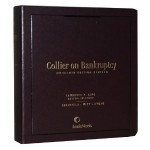
No, not this bankruptcy expert. The other one. Bankruptcy Judge A. Jay Cristol (S.D. Fla.) was vexed by a bankruptcy statute saying that if an individual debtor in a voluntary chapter 7 or 13 case fails to file certain information within 45 days of filing his petition, the case shall be “automatically dismissed” on the 46th day. Judge Cristol struggled with the statutory riddle of how a case could be automatically dismissed without court action or even a docket entry. He decided to analyze the question in the style of one of the foremost experts in bankruptcy. Nope, not Collier. I do not like dismissal As Paul Scott wrote when he sent in a federal district court opinion involving an excessive force claim against a Georgia police officer, it’s not too hard to figure out which side’s going to win the case when the court’s decision starts out by measuring the plaintiff’s sprained-wrist claim against “the rights of those thousands of American soldiers” who fought and died on D-Day in World War II: This case demonstrates the proclivity of American citizens today to search for legal causes of action to redress every imaginable wrong. As we commemorate the 60th anniversary of the Allied’s invasion of Normandy during World War II, the Court must Several grounds exist for a judge denying a lawyer’s motion. Now we have a new one: incomprehensibility. Displeased with a lawyer’s inartful motion-drafting, U.S. Bankruptcy Judge Leif M. Clark (W.D. Tex.) entered an order captioned “Order Denying Motion for Incomprehensibility.” The judge couldn’t figure out what the heck the defendant was requesting in a motion titled, “Defendant’s Motion to Discharge Response to Plaintiff’s Response to Defendant’s Response Opposing Objection to Discharge.” Judge Clark said: “The court cannot determine the substance, in any, of the Defendant’s legal argument, nor can the court even ascertain the relief that the Defendant is requesting. The Defendant’s motion is accordingly denied for being incomprehensible.” Perhaps 
In an Arizona case, the plaintiff’s lawyer asked the defendant’s lawyer to go to lunch to discuss some pending issues. Defense counsel refused, so the plaintiff did what anyone would do when they get rejected for a lunch date: file a “Motion to Compel Acceptance of Lunch Invitation.” Here’s what Judge Pendelton Gaines, Superior Court of Maricopa County, Arizona, had to say in granting the unusual motion: Conversation has been called “the socializing instrument par excellence” (Jose Ortega y Gasset, Invertebrate Spain) and “one of the greatest pleasures in life” (Somerset Maugham, The Moon and Sixpence). John Dryden referred to “Sweet discourse, the banquet of the mind” You don’t have to be a famous judge or blessed with a crazy case to write a Hall of Fame Strange Judicial Opinion. Here we have a low-level New Zealand trial judge trying to educate his appellate court masters about life down in the “real world” trial court-trenches, and a good-humored, self-effacing reply from the appellate court. In New Zealand, an appeal over a $100 fine for failure to register “a handsome German Shepherd named Ben” apparently irritated the overworked trial judge. In a memorandum, the judge sought to educate the high court about the process for administering justice in his humble court at the bottom of the judicial hierarchy: 
Changing venue because of a volcano? Sure, it sounds far-fetched, but don’t blow your stack. It really happened in U.S. v. McDonald, a 1990 federal bribery prosecution in Alaska. Fearful that an unpredictable volcano named Mt. Redoubt would act up and disrupt the trial, Judge James M. Burns granted a motion to change venue for the trial from Fairbanks, Alaska to Tacoma, Washington. Judge Burns noted he could find “no precedent for changing venue because of an earthquake, hurricane, tornado, flood, volcanic eruption, or other natural disaster,” but said Mt. Redoubt was “entitled to a modicum of judicial respect.” Judge Burns might be a Jimmy Buffett fan. Usually, when 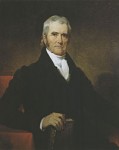
Chief Justice John Marshall, author of Marbury v. Madison. In a 2005 opinion, an Alabama Supreme Court justice (that well-known jurisprudential heavyweight “Tom Parker”), without a trace of irony, called the U.S. Supreme Court “presumptuous” while declaring Marbury v. Madison and its progeny to be “unconstitutional.” For non-legal types, Marbury is the landmark 1803 Supreme Court case authored by the great Chief Justice John Marshall that established the power of “judicial review”; i.e., that the Supreme Court gets the last word in disputes with the legislative and executive branches of government. The Alabama case involved a challenge to the constitutionality of certain statutes affecting taxation and the funding 
A single ringing phone sent 46 people to jail. Calling it “an egregious and unprecedented abuse of judicial power,” the New York State Commission on Judicial Conduct ordered the removal of Niagra Falls City Court Judge Robert M. Restaino for an incident in which he freaked out when a cell phone rang in his court. He ended up ordering 46 defendants into police custody when he couldn’t find who had the ringing phone. It all started when a cell phone went off in the back of a crowded domestic violence courtroom in which 46 defendants were about to be released on their own recognizance. In addition to 
It's a dog-eat-divinity student world. A dog-bite case against the dean of the Yale Divinity School by a divinity student gave U.S. District Judge Gerard Goettel a chance to “let the dogs out” in an opinion leaving no possible wordplay on dogs unpenned or unpunned. The main issue was whether the Yale Divinity School could be held strictly liable under the Connecticut dog-bite statute as a “keeper” of the dean’s offending canine, Rocky, a Labrador, because the dog was permitted to roam free in common areas of the divinity school residences and chapel. The court held the dean strictly liable, but let the school off because it 
Geoff Petis sent along this interesting case. I’ll let him tell you about it: New York Judge Philip S. Straniere penned an opinion about “shrinkwrap” agreements—contracts that may or may not become valid upon the opening of the package. The agreements go by different names (shrinkwrap, clickwrap, etc.), but the rose still smells as sweet. Evidently, Judge Straniere—who apparently takes his pizza as seriously as his contracts — did not agree: Before deciding the merits of this case the court must address a troubling issue. The computer industry and other courts have adopted the term “pizza box” to describe the package in which the document containing the 
As a kid, I couldn’t wait to get my hands on each new issue of MAD Magazine. Alfred E. Neuman and company had a lot to do with shaping (warping) my sense of humor. One of my favorite features, and the first thing I looked at every month, was the folding back covers, which showed one picture unfolded but ingeniously formed a different, wacky picture when folded. I’m glad to see that MAD has not been forgotten, even in the hallowed halls of justice, as shown by Cabiness v. Town of James Island, South Carolina Supreme Court case. The case involved a third failed attempt by the Town 
Won a defamation judgment for being called ugly. A 1996 English libel case reminds me of the old Rodney Dangerfield joke: “My psychiatrist told me I’m going crazy. I told him, ‘Doc, if you don’t mind I’d like a second opinion.’ He said, ‘Alright, you’re ugly too.’” In Berkoff v. Burchill, an English court of appeals held that describing a person as ugly can constitute actionable defamation. No wonder people are flocking to England to take advantage of the country’s plaintiff-friendly libel laws. It’s highly doubtful calling someone ugly would be actionable defamation under U.S. law. (By the way, this practice, known as “libel tourism,” resulted in U.S. District Judge Richard P. Matsch awarded attorneys’ fees and costs in a patent infringement case against a pair of high-echelon lawyers and their clients for trial misconduct “reflecting an attitude of ‘what can I get away with?’” and a “winning is all that is important approach” to litigation. A media report estimated the fees and costs could run several million dollars. Judge Matsch had previously thrown out the plaintiffs’ $51 million verdict in the case based on the same conduct. The case raises interesting questions about the extent of a judge’s obligation to control attorney conduct it finds objectionable during the course of a trial. The facts are complicated 
Dr. Seuss – Most emulated poet of the American judiciary. For reasons unexplained, a pro se inmate litigant apparently included a hard-boiled egg as part of his request for a preliminary injunction. U.S. Magistrate James Muirhead ordered the egg destroyed. He did it in the style of Dr. Seuss, who may be on his way to being named poet laureate for the federal judiciary (see “Dr. Seuss on Bankruptcy Law” in which a federal bankruptcy judge also engages in Seussian rhyming): No fan I am Of the egg at hand. Just like no ham On the kosher plan. 
Gun Control and Gun Rights (N.Y.U. Press 2002) (with David B. Kopel & Brannon P. Denning) Most firearms policy discourse falls firmly on one side of the debate or the other. Showcasing viewpoints from all sides of the gun control debate, Gun Control and Gun Rights offers the first (and still the only) balanced firearms law and policy book. Anyone looking for a fair, even-handed account of the gun issue will find it in this book. Review Excerpts: “Most academic literature regarding firearms policy is one-sided advocacy scholarship. … This book seeks to create … a balance.” — Future Survey “For the most part, 
The Law School Trip: The Insider’s Guide to Law School (Trafford 2001) The Law School Trip, a satire of legal education, gives the complete inside story on: The LSAT® and Other Registered Trademarks, How to Survive the Socratic Method with Treatable Injuries, Learning to Love Mrs. Palsgraf, Fun, Fun, Fun and the Rule Against Perpetuities, Strange Creatures from Outer Space and Other Law Professors, Law’s Greatest Hits: Best First-Year Cases, and more. Review excerpts: “Laughter is what McClurg’s book provides. Lots of laughter. Heaps and mounds of undulating and ululating laughter. … McClurg makes the law school experience sparkle and shine. He has the unique 
Practical Global Tort Litigation: United States, Germany and Argentina (Carolina Academic Press 2007) (with Adem Koyuncu and Luis Sprovieri) Practical Global Tort Litigation is the first entry in The Contextual Approach Series to comparative law, which McClurg conceived while a professor at Florida International University College of Law. The series, for which McClurg serves as editor, is intended to show how the law “really works” in different nations by following hypothetical cases in different subject areas from beginning to completion. The books are designed to “show” instead of just “tell.” Practical Global Tort Litigation takes readers on a journey through a 
A washing machine laughing hysterically at Judge Brown's opinion. In 1973, the Fifth Circuit struck down a Dade County detergent labeling ordinance, finding that the ordinance, intended to reduce pollution from ingredients found in household detergents, was preempted by the Federal Hazardous Substance Labeling Act. Chief Judge John Brown concurred, managing to work in the brand names of just about every detergent product available, becoming a humorous opinion-writing path-breaker. Let us know if we’re wrong, but Judge Brown’s opinion–published in 1973–may be the first overtly intentional effort by a federal court of appeals judge to write a clever and funny opinion. It’s a lot easier for a Amicus Humoriae (Carolina Academic Press 2003) The co-editors–law professors Robert M. Jarvis, Thomas E. Baker, and Andrew J. McClurg– collect twenty-five of the funniest law review articles from the past fifty years, arranged in five categories: law students, law professors, lawyers, judges, and legal scholarship. Who says law journal articles have to be stuffy and boring? An “intelligent gift” for lawyers, filled with outstanding writing and sophsticated wit. Review Excepts “A collect[ion] of rare gems.” — The Green Bag “A very funny romp through legal life.” — The National Law Journal “Definitely a good read.” — The National Jurist “[S]plendid examples of the seriously underdeveloped Most “funny” judicial opinions aren’t ha-ha funny. They’re merely amusing or interesting. But Lawhaha.com’s scientific focus group tests showed that the colloquy below between the chastised lawyer and the judge makes people laugh out loud. For that, it’s in the SJO Hall of Fame. In Ahmed v. Reiss Steamship Co., a federal judge held the plaintiff’s lawyer in contempt of court for failure to appear for trial. Judge Ann Aldrich (N.D. Ohio) was disturbed that the lawyer had “told two different federal district court judges that he was appearing before the other,” sort of the legal version of the old childhood stratagem for a night out in which each kid Ever think being a “taste-tester” might be a good way to pick up a few extra bucks? Better read the fine print before signing up. U.S. Patent No. 6,485,773 is a patent for an invention for a “semen taste-enhancement dietary supplement.” This invention allegedly results in a “significant improvement to the taste of the male ejaculate by reducing its generally salty and/or bitter taste while also adding a pleasant flavor that is considered by 98.5% of all customers as very enjoyable.” Marketing testing started with 27 couples of various lifestyles, all of who reported “significant semen-taste improvement.” The secret ingredients include freeze-dried pineapple juice, broccoli powder, celery powder, strawberry powder Andrew Jay McClurg, Fixing the Broken Windows of Online Privacy Through Private Ordering: A Facebook Application, 1 Wake Forest Law Review Online 74 (2011). Building on a growing body of contract-based privacy scholarship, Professor Patricia Sánchez Abril has advanced a creative, concededly ambitious proposal for people to privately order their online interpersonal privacy: a system of standardized click-wrap-type confidentiality agreements in which social network users would be required to accept a content provider’s personal privacy preferences to access their online information. The contracts would be legally binding, enforceable through traditional means, although Abril suggests that most breaches would be minor and could be addressed by a self-policed U.S. Ninth Court of Appeals Judge Alex Kozinski is well known for sprinkling pop culture references throughout his opinions, particularly in the famous Syufy opinion, which wove in the titles of more than 200 movies. (See “Coming Soon to a Footnote Near You”) A less noticed, but just as fun pop culture-laden opinion was his dissent to an order denying rehearing en banc in White v. Samsung Electronics America, Inc., a case where the Ninth Circuit upheld a “right of publicity” claim by former game show hostess Vanna White against Samsung for using a robot resembling her game show persona in Where do scandals go when they die? They travel upwards, of course … to a U.S. Court of Appeals. At least if they’re scandals involving the saga of President Bill Clinton’s sexcapades. U.S. Ninth Circuit Court of Appeals Judge Alex Kozinski faced an appeal in a defamation suit filed by former lounge-singer Gennifer Flowers against Hillary Rodham Clinton, James Carville and George Stephanopoulos. With that cast of characters (including Judge K), you know it’s going to be an interesting opinion. This is an opinion to be admired as much for its lucidity as its colorful take on the events. Here’s a taste from the opening paragraphs (some paragraph breaks Seems as though colorful California Court of Appeals Judge Robert Gardner, a Lawhaha.com Hall-of-Famer, had to deal with more than his fair share of bawdy subjects. But to resolve them, he consistently applied his excellent writing with good old common sense, leaving memorable opinions for the rest of us to enjoy. In People v. Sarong Gals, the owners of “Sarong Gals,” a bar featuring live nude dancers, appealed an injunction entered against them under California’s Red Light Abatement law, a 1913 statute declaring to be a public nuisance any place used for the purpose of lewdness, assignation or prostitution. Defendant’s primary argument was that the Red Light Abatement statute can 
Lawhaha.com Hall of Fame Judge Robert Gardner U.S. Court of Appeals Judge Alex Kozinski, a Lawhaha.com Strange Judicial Opinions Hall-of-Famer, took time to send in his praise for another judge who dared to be different: California Court of Appeals Judge Robert Gardner. Judge K said Gardner is one of his heroes, and included his favorite Gardner quote, from People v. Benton. Although it involves profanity, as Judge Kozinski said, it’s for a good cause: Mrs. Barnhill and her daughter, Sainna Okeson, were seated at the kitchen table in Mrs. Barnhill’s apartment on Keel Street in Anaheim on the evening of August 2, 1976. Around midnight, As a member of a Memphis rock cover band that plays several Beatles songs and a huge Beatles fan, I have a special appreciation for Montana Judge Gregory R. Todd’s order in a 2007 criminal case. After the defendant pleaded guilty to burglary, he was asked to fill out portions of a pre-sentence investigation report. In response to the question, “Give your recommendation as to what you think the Court should do in this case,” the defendant replied, “Like the Beetles say, ‘Let It Be.’” Judge Todd took issue with both the defendant’s apparent plea for leniency and also his misspelling of the name of the Beatles, for whom Judge 
Justice Michael Musmanno, a Lawhaha.com Hall of Famer Any fan of judicial opinion writing needs to study the opinions of the Honorable Michael A. Musmanno (1897-1968). He led a remarkable life. Before joining the Pennsylvania Supreme Court, Justice Musmanno enjoyed an illustrious career as a lawyer, U.S. Congressman and author. Highlights of his career include serving as the presiding judge at the Nuremberg war crime trials and as a defense lawyer in the Sacco & Vanzetti trial. His opinions are marvelous concoctions of deep-hearted passion and brutal common sense, delivered in highly literate and often hilarious prose. U.S. Ninth Circuit Court of Appeals Judge Alex Kozinski, another In a classic slip and fall case, plaintiff Joseph Rosenberg slipped on asparagus while dancing at a wedding reception with his sister-in-law and fellow plaintiff, Ruth Schwartz. The issue was whether the defendant caterer had negligently spilled the asparagus on the dance floor. The trial judge had dismissed the lawsuit on theory that the offending asparagus could have been unwittingly transported onto the dance floor after becoming entrapped in the apparel of the dancers. As with many of the judicial opinions posted on Lawhaha.com, brief excerpts don’t do this case justice. My favorite part is how the legendary Justice Michael Angelo Musmanno of the Pennsylvania Supreme Court bluntly and rather The classic dilemma of the law. Which is more important: following the rules or dispensing justice? Being faithful to precedent or willing to bend technical legal rules to reach the correct result? We struggle with these issues from the time we’re first-year law students. Rules won out in ugly fashion in In re Estate of Pavlinko. Vasil Pavlinko and his wife, Hellen, immigrants who spoke little English, went to a lawyer to have separate wills drawn up. Both wills left their residual interest to the same person: Elias Martin, the brother of Hellen Pavlinko. Unfortunately, when it came time to sign the wills, the wills got mixed up and Vasil Anyone who appreciates great judicial opinion-writing loves Pennsylvania Supreme Court Justice Michael Musmanno, but his rant over Henry Miller’s classic novel, The Tropic of Cancer, in Commonwealth v. Rubin, was not one of his better outings. Miller penned The Tropic of Cancer, widely hailed as one of the great novels of the 20th century, in 1934. Published in the U.S. in 1961, the book, which contains several frank sexual passages, became the focus of a number of obscenity trials. Commonwealth v. Rubin was an action to restrain the selling of the book. The trial court granted an injunction, which a majority of the Pa. Sup. Ct. overturned on First Amendment In 1920, a New Jersey chancery judge was faced with a wife’s suit for marriage annulment on the ground of the husband’s alleged impotency during their five years together. The husband “vigorously protested his virility, but admitted the nonconsummation of the marriage.” The husband asserted he refrained from intercourse with his wife because he did not want to hurt her. Interestingly, given the date, the judge thoughtfully considered whether the husband’s condition was psychological, especially since he had “submitted to an examination by one of his wife’s physicians, who testified that he was structurally a male, normal in the parts, and to all appearances capable of coition.” The judge forged 
The Kinks got it right in their song, “Destroyer,” when they sang that paranoia will destroy ya. It certainly did so for the defendant in a case where, after getting paranoid at a 1999 Phish concert in Oswega, NY, presumably while under the influence of an hallucinogenic drug, he became convinced the police were following him and that the band was sending him messages through the music. Fleeing the concert, he traveled 250 miles on foot and by hitch-hiking, convinced the police were after him the whole way. (He believed that every car with an “A” in the license number contained police officers.) Some thirty-six hours later, he finally |
||
|
Home | Privacy, DMCA, and Other Legal Stuff | Site Map
Copyright © 2025 Andrew J. McClurg All Rights Reserved Powered by WordPress & Atahualpa |
||


